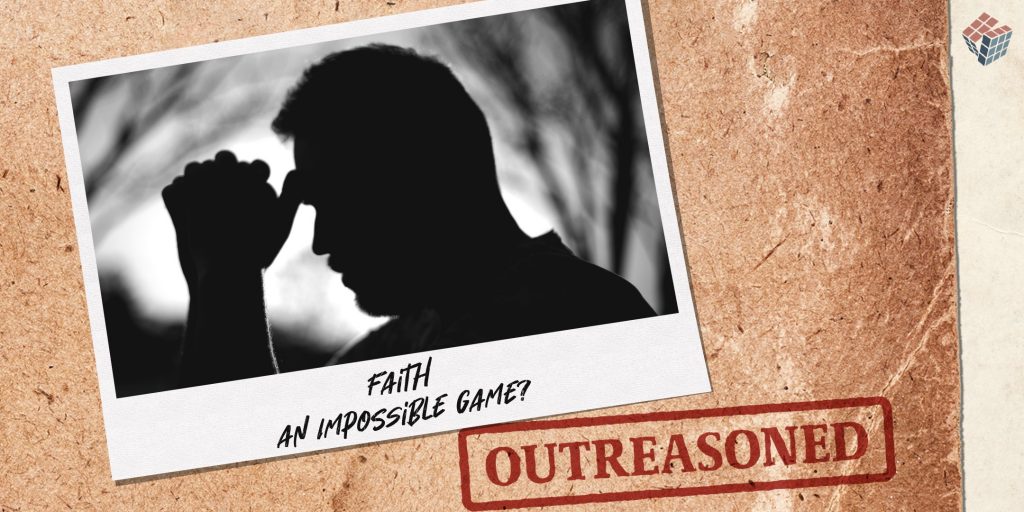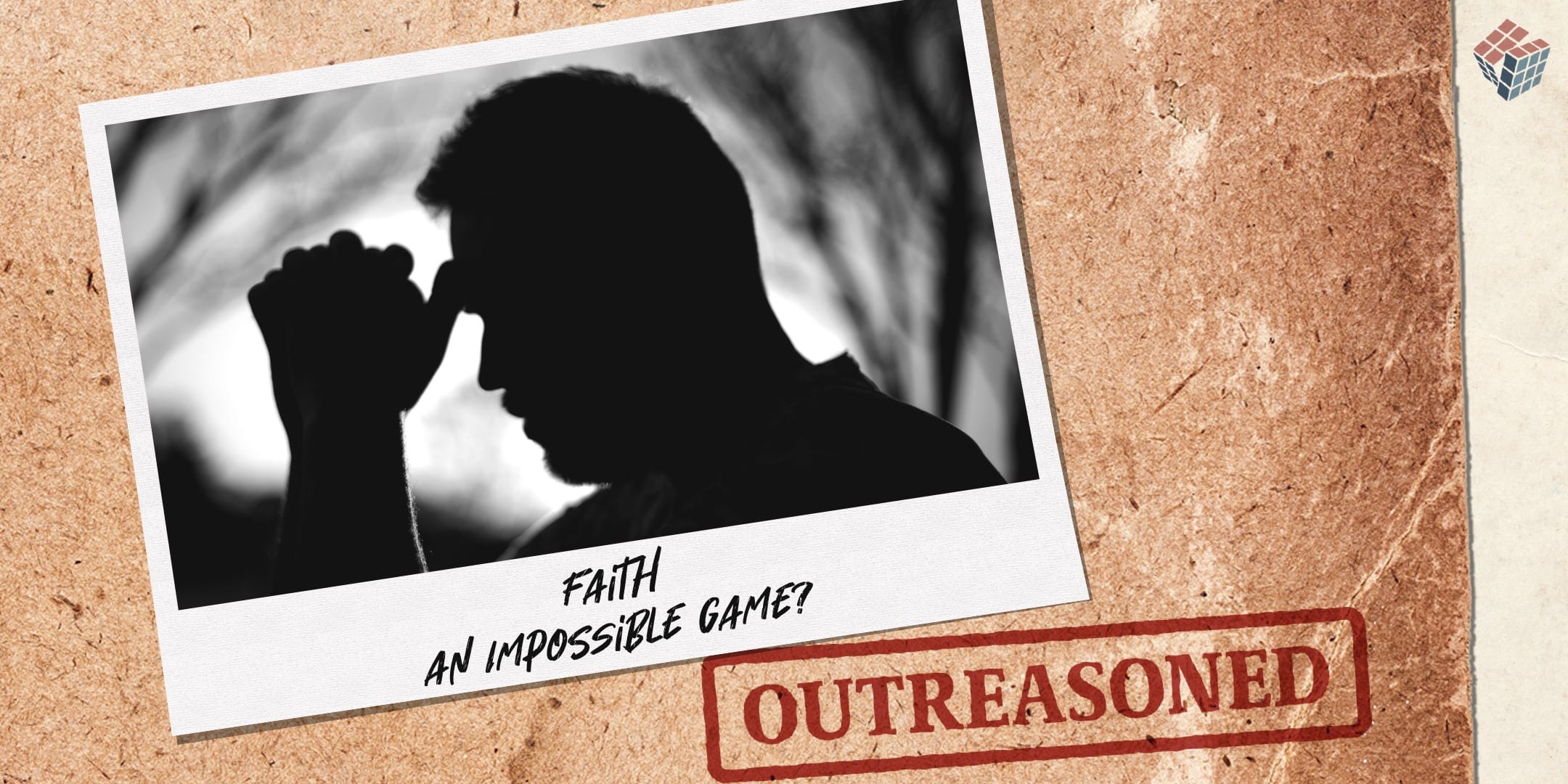
Sohail begins his long-form article by asking readers to watch a seventy five second video that “sets the stage” for his article. It is entitled “The Impossible Game”. The Impossible Game argues that religious claims constitute a game one can never win. This is because religious beliefs require a person to investigate, through an experiential process, the beliefs of every religion or so-called supernatural belief system. The author of this video, Theramin Trees, argues that this constitutes an “impossible game” since investigating, through sincerely living out the way of life of each religion, is a task that cannot be completed in one lifetime, let alone many. If you pursue one religion, and find it to be false, you will be told simply to seek out another, and on finding that to be false, you would seek out another, and so on.
“My atheism is a refusal to play an impossible game,” Theramin Trees ends his video with. As such, Theramin Trees argues, it is better to dissociate from the game entirely. Don’t play the game. It isn’t worth your time, or your life.
Refutation
This argument is false for the following simple reason: It makes the assumption that all religions make the same claims as regards the possibility of knowing God in this life as a matter of certainty rather than as a belief.
Hinduism does not make such a claim; Judaism does not, Christianity does not. Certainly, they may claim that one can have spiritual experiences, but there is no surety in them. There is certainly no claim that by following their path one will have such experiences, or that such manifestations will lead to perfect certainty of God’s existence, when repeatedly experienced.
Only Islam, and specifically the Ahmadiyya Muslim Community out of the comity of Islamic communities, claims that by following it, one will attain personal evidence of God’s existence, by which one will be led to certainty (not just faith) and knowledge of God’s existence.
The true purpose of adopting a faith is that one should acquire such certainty concerning God, Who is the fountainhead of salvation, as if one can see Him with one’s eyes…The only way of acquiring certainty is to experience God repeatedly through converse with Him or through witnessing His extraordinary signs, or by keeping company with someone who has that experience.
Essence of Islam Vol. 1, p3-4; Hazrat Mirza Ghulam Ahmadas)
The religion that claims to be from God must show signs of being from God and should bear God’s seal, which should attest the fact that it is from Him. Islam is such a religion. That God Who is hidden is known through this religion and manifests Himself to the true followers of this religion. A true religion is supported by the hand of God and through such religion God manifests Himself that He exists. The religions that depend entirely upon stories are only a form of idol worship. Such religions do not possess the spirit of truth. If God is alive as He was, and speaks and hears as He did, there is no reason why He should continue to be silent as if He does not exist. If He does not speak in this age, then equally and certainly He does not hear either. In other words, He is now nothing. That religion alone is true which demonstrates that God hears and speaks in this age also. In a true religion, God attests His existence through His speaking.
(Essence of Islam Vol. 1, p 6; Hazrat Mirza Ghulam Ahmadas)
At the very first step, almost all paths except for Ahmadiyya Islam can be ruled out through this principle. So it is not an Impossible Game. Simply ask yourself the following questions:
- Which path claims that I can attain confirmation of its truth through direct experience in this life?
- Pursue that path first and discover whether it is true or not, before pursuing such faiths as make no such claim.
Indeed, this criterion is the third of three major criteria the founder of the Ahmadiyya Muslim Community laid out when advising people on how to determine which religion is true:
In order to recognize a true religion it is necessary to look at three matters.
In the first place, one must see what is the teaching of a religion concerning God. That is to say, what does a religion state with regard to the Unity, power, knowledge, perfection, greatness, punishment, mercy and other attributes of the Divine…..
Secondly, it is necessary that a seeker after truth should inquire what does a religion teach with regard to his own self and with regard to human conduct. Is there anything in its teaching which would disrupt human relationships, or would draw a person into courses which are inconsistent with modesty and honour, or would be contrary to the law of nature, or would be impossible to conform to or carry out, or make it dangerous to do so. It would also be necessary to see whether some important teaching needed to control disorderliness has been left out. It would also be necessary to discover whether a religion presents God as a Great Benefactor with Whom a relationship of personal love should be established and whether it lays down commandments which lead from darkness into light and from heedlessness to remembrance.Thirdly, it is necessary for a seeker after truth to satisfy himself that the god presented by a religion should not be one who is believed in on the basis of tales and stories and resembles a dead being. To believe in a god who resembles a dead being, belief in whom is not by virtue of his having manifested himself but is due to one’s own good faith, would be to put him under an obligation. It is useless to believe in a god whose powers are not felt and who does not himself make manifest the signs of his own existence and life.
(Essence of Islam Vol. 1, p5-6; Hazrat Mirza Ghulam Ahmadas)
As such, Sohail’s argument is based on a mischaracterisation of different religions, and on the assumption that no religion claims to be able to lead a person to true certainty of God’s existence in this life.
In fact, all the criticism achieves is to highlight the unique nature of the claims of Ahmadiyya Islam, and guide people to investigating this particular faith before the rest.


